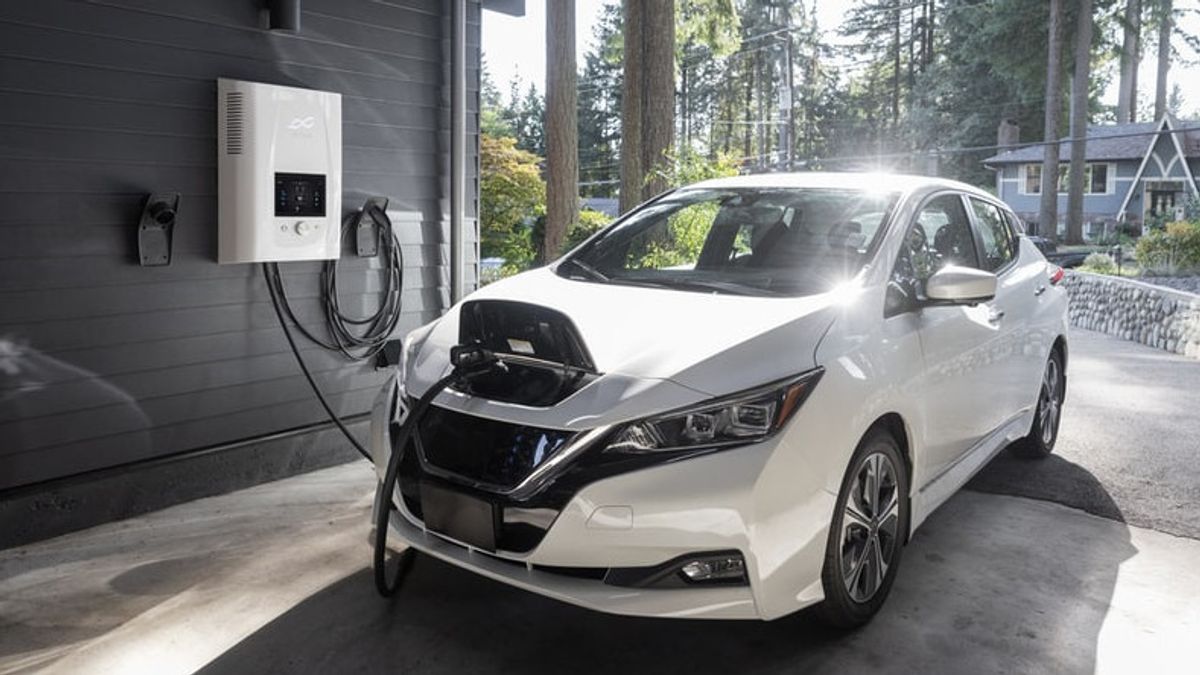JAKARTA - The widespread use of electric and hybrid vehicles in a number of countries has pushed exhaust emissions down. One of them is from emissions created by new cars in the UK now falling to a record low in 2021.
According to new data from a local industry group, this decline was due to the proliferation of electric cars. They are therefore encouraging more investment in charging stations and public transport needed for the UK to meet its goal of reducing emissions by 78 per cent by 2035.
According to the British trade association Society of Motor Manufacturers and Traders (SMMT), average emissions for new cars in the UK have now fallen by more than 11 percent to around 120 grams of carbon dioxide per kilometer according to last year's data.
That means drivers switching to EVs have helped reduce emissions from Britain's biggest source of pollution. Road transport accounts for more than a quarter of the UK's annual greenhouse gas emissions.
However, if scaled down, private vehicle sales jumped 64 percent this January compared to January 2021. While sales have not recovered to the way it was before the pandemic that restricted travel, more cars on the road means more pollution as the majority of vehicles still waste gas.
Even after sales of battery electric vehicles more than doubled YoY in January 2022, they only accounted for 12.5 per cent of new cars registered in the UK that month.
Together with plug-in hybrid electric vehicles, about 20 per cent of January's new car sales could be connected to the grid, which the UK is working on to decarbonise.
Meanwhile SMMT expects sales of new EVs and hybrids to continue to grow rapidly this year. But consumer concerns about charging stations being infrequently available are still holding back and slowing EV adoption, the trade group said.
The UK government is already planning to ban the sale of internal combustion vehicles from 2030 and hybrid cars from 2035.
Experts say putting more EVs on the road shouldn't be the only way to address transportation's contribution to the climate crisis. The government also needs to reduce the number of cars on the roads overall by designing cities that are more walkable and making public transport more resilient.
Unfortunately, roads in the UK and in many countries around the world, became much more congested with motorized traffic between 1990 and 2019.
“There are still mountains to climb to reduce the UK's carbon emissions from cars. The 90,000 internal combustion engines launched this month will continue to pollute and keep motorists in their pockets for another 14 years on average,” Ben Nelmes, head of policy and research at thinktank New AutoMotive, told The Guardian.
While the UK has a long way to go to rid its cars of planet-warming pollution, much of the world is even further behind. Globally, less than 5 percent of passenger car sales were electric or hybrid vehicles in 2020. And while pollution from transportation was reduced in 2020 as a result of the pandemic, worldwide, emissions are starting to recover.
The English, Chinese, Japanese, Arabic, and French versions are automatically generated by the AI. So there may still be inaccuracies in translating, please always see Indonesian as our main language. (system supported by DigitalSiber.id)









